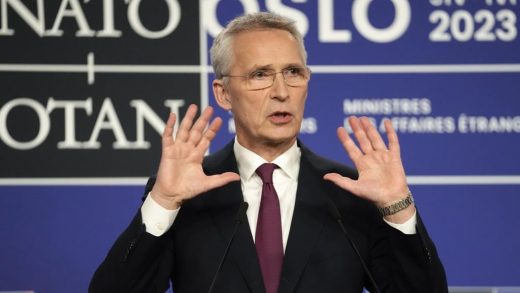Out, but not down

As Canadians piled out of Khalifa International Stadium last Sunday after Croatia’s 4-1 drubbing, the mood was glum. Sad fans with the Maple Leaf draped over their backs and scarves slung haggardly around their necks walked silently back to the metro.
There had been so much hope and anticipation for the CONCACAF champions. The hard-fought opening match — with plenty of scoring chances against second-ranked Belgium — created many new global admirers and respect for the team. Suddenly, there was a demand for Canada jerseys and paraphernalia.
Fans began to believe beating the 2018 World Cup finalists was possible. Collectively we did the math, fantasizing about vaulting into the second round. Coach John Herdman bellowed out the now infamous, “We are going to eff Croatia,” and we wondered out loud about the possibility.
As it turned out, Croatia got the last laugh, ensuring Canada wouldn’t advance to the Round of 16.
It was a blast to be at the World Cup and dream about favourable results. Canadians came en masse to cheer on a really good squad, and it was fun while it lasted.
A few groups of friends sang O Canada like drunk sailors. Others belted out Trooper lyrics: “We’re here for a good time, not a long time, the sun can’t shine every day.”
It was a fitting song for a team that hadn’t qualified for the World Cup in 36 years. We were this tournament’s Jamaican bobsled team, its Iceland against perennial powerhouse nations, thinking we could somehow pull off a miracle.
It took a lifetime for Canada to hit the back of the net, but only 63 seconds into the game against Croatia for star Alphonso Davies to soar onto a crossed ball and head it gloriously into the Croatia goal. It was exactly what he needed after missing a penalty against Belgium.
It is also just the beginning for this young squad.
The next World Cup is in Canada, Mexico and the United States. Canada will have a hometown crowd, plus four years to prepare.
Surely, FIFA will be glad to turn the page on this Qatar experience. Despite phenomenal stadiums and a country that went out of its way to create an extraordinary backdrop for its guests, the tournament will be remembered for bribery scandals, dogged human rights abuses and anti-LGBTTQ+ laws.
The game belongs to the international community and it shares our global issues. Russia was kicked out of qualifications after it invaded Ukraine. The Iranian players refused to sing their national anthem in support of the women’s freedom movement in their country until threats to their family members reluctantly unified them in song. Their ferocity turned to the U.S. Soccer Federation for briefly displaying Iran’s flag on social media without the Islamic Republic’s emblem. Police used water cannons and tear gas in Brussels to tame havoc on the streets after Belgium’s loss to Morocco. The world’s problems come under a microscope at the World Cup.
I spoke to an Iranian couple who attended the U.S. match. Sporting faces painted with the colours of the Iranian flag colours and a dove, they said they were attacked by a government supporter on the way to the match who accused them of being Israel-supporters. When they spoke to him in Farsi, he screamed “you are spies.” At the stadium, they had their women’s freedom flag confiscated.
There have been so many contrasting experiences. Through it all, FIFA asked us to focus on the games. And there have been brilliant experiences. Every player on the Saudi team now has a new Rolls Royce after downing Argentina 2-1. Lionel Messi and company then tore through Mexico in front of 88,000 duelling supporters hitting concert-level decibels. African nations are faring well with on-field flair and elaborately decked-out, exuberant fans. Brazil is always Brazil. After tying with Poland in group standings, Mexico was ousted on yellow card numbers. The expected stars are shining — Mbappé, Ronaldo, Pulusic, Rashford, to name a few. The intensity has been ramping up as the stakes increased. Now, every game matters, every 90 minutes sends a team packing.
So why is it hard to just focus on the matches, as FIFA recommends?
Reports show more than 6,000 migrant workers died building the World Cup infrastructure in Qatar, working and living under slave-like conditions in many cases. When we sit in our stadium seats, we wonder how many people lost their lives here. Advocates want to see a remedial fund set up for the families of these workers. Workers are demanding solid reforms as a legacy of the World Cup.
Fans from Canada and Morocco take in the pre-game festivities on Thursday. (Carrie Serwetnyk photo)
An Iranian couple said they had their women’s freedom flag confiscated when they arrived at the stadium. (Carrie Serwetnyk photo)
Anti-gay laws with punishments of up to seven years in jail have also drawn the ire of global human rights proponents. Captains from seven European teams were threatened by FIFA with yellow cards if they wore One Love armbands in support of the LGBTTQ+ community. German players stunned a worldwide audience by covering their mouths for their team photo before their opening match.
I spoke to a gay waiter at a prestigious major hotel. He is from Europe and is working 16 hours a day for $300 a month. He wants it on his resumé as he believes it will help him work anywhere in the world. He tells me he is hit on by men in thobes regularly. They come to sit in his area, ask him to show them where the bathroom is and they say things like, “I need you to come hold me and hug me.”
He tells me they are powerful men. One’s family owns a chain of hotels. He is able to deflect them, but it’s a fine balance between pleasing people and not going too far. These people can ruin his career. They can blacklist him from all of the country’s hotels. I ask him if this would happen in Europe, and he shakes his head. “I am protected by law there.” We are reminded how advanced our laws are in Canada.
Sinister moments among the joyful play is an ugly reality at global events. Canadian goalkeeper Milan Borjan endured taunting from Croatian fans who held a sign reading “KNIN 95 — Nothing runs like Borjan.” They were referring to the victory over Serb separatists that drove Borjan and most ethnic-Serbs from their homes in Croatia. He also received more than 2,500 nasty messages on his phone after his number was leaked. The CSA has asked for disciplinary actions against Croatia.
Borjan coughed up an early goal in Canada’s last match against Morocco in the final match Thursday. Confronted by an intense and deafening crowd that sounded like millions of crickets at Al Thumama stadium, Canada still looked hungover and out of sorts from the Croatia defeat. They were suddenly down 2-0 after 23 minutes.
They never gave up. A lucky goal came when a cross from Sam Adekugbe deflected off a Moroccan defender for an own-goal and it was 2-1.
The final half showed hopeful glimpses for the Canadian team’s future with spirited possession and a will to attack, but a crossbar, a stubborn defence playing for a ticket to the Round of 16, and 40,000 raucous Moroccan fans stood in their way. It was the same Canadian team we saw pressing Belgium during the opening game that had us on our toes trying to will the ball over the goal line. But it was all for naught and Canada will return home from their second World Cup without a win.
The loss will be a bitter heartache to bear. Herdman called them “learnings.”
We were indeed here for a short time; it was a good time — and there are more to come. That’s the good news — the shining light. We will be back in four years.
Carrie Serwetnyk is a former Canadian national team member and the first woman inducted in the Canadian Soccer Hall of Fame. She is in Qatar sharing the World Cup experience.
Credit: Out, but not down


